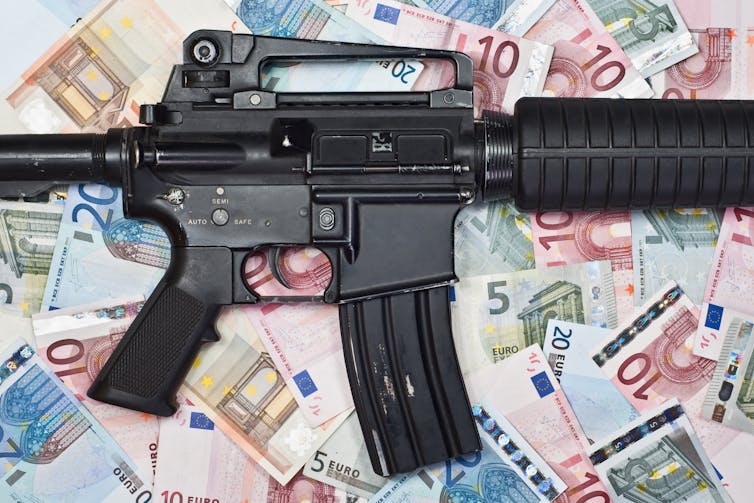
By John Fraser
Given the Belgians’ track record in Africa, with King Leopold II having been responsible for as many as 10 million deaths in the Congo, it was perhaps a tad ironic that the recent official visit of the Belgian King involved a broadside against our own government.
Last month’s state visit by King Philippe (cruelly demoted to Prince Philippe in tweets by both the Presidency and the DTIC) was, on balance, highly successful and will no doubt boost trade relations between our two nations.
However, President Cyril Ramaphosa was reportedly rattled when the Belgian Foreign Minister Hadja Lahbib, who accompanied her monarch, lashed out at South Africa over its love affair with Vladimir Putin, whose human rights breaches in Ukraine have triggered an international arrest warrant.
It was reported that the President hurriedly evicted the media from his meeting with the belligerent Belgians, but the Presidency denied this.
In a visit to Congo last year, King Philippe apologised for his country’s colonial record of “paternalism, discrimination and racism” but there is no doubt that the Belgium of today has nothing in common with the country ruled over by Leopold II, the brother of King Philippe’s great-great-grandfather.
What is not in dispute is that the Belgians are concerned about South Africa’s failure to publicly condemn Russia’s war crimes in the Ukraine conflict. As are the other Western nations.
There have been the predictable defensive mumblings about SA having a constructive role to play in leveraging its relationship with Moscow to put gentle pressure on Putin to deflate the Ukraine conflict, but we all saw the futility of this tactic with SA’s impotent pressure on Robert Mugabe’s vile regime.
Indeed, it may well be that the Belgians did President Ramaphosa and his lily-livered cabinet colleagues a big favour by pointing out that our Western allies are frowning upon SA’s romance with Moscow.
SA’s awkwardness was cranked up by the news of an international arrest warrant against Putin, who is due to be hosted by President Ramaphosa at the BRICS summit later this year.
It will be interesting to see whether SA will be able to welcome the Russian leader in defiance of the warrant, which was issued by the International Criminal Court (ICC) in The Hague.
If they let him come and go, this will further discredit our country in the eyes of the civilised world.
However, there is a good chance that SA will wave two fingers at the West, but not in a Churchillian sense.
Another reported solution will be that the BRICS Summit will be a hybrid event, as South Africa can’t be compelled to arrest a video image of the modern-day Tsar.
I have argued elsewhere that the widespread corruption and human rights abuses within the BRICS nations make it very hard for South Africa to retain its membership, especially now that there is talk of expanding the club to include more pariah nations, like Saudi Arabia, Iran and Afghanistan.
It is surely time to go one step further now and shut down the BRICS club in its entirety.
While there were some valid arguments for its initial formation, as a counter to the geopolitical dominance of the West, this informal alliance contains two of the least democratic nations on the planet – the Russians and Chinese. And they are tainting the other members.
Putin’s annihilation of his political opponents, and his war crimes in Chechnya, Crimea and now his troops’ barbarity in the Ukraine War made him an undesirable member of any club – and that was before the ICC arrest warrant was issued.
The human rights crackdowns in their own country, and in Hong Kong, which was meekly returned to them by Margaret Thatcher on a day when her iron lady armour was being polished, also make the Chinese unsavoury BRICS buddies.
Of course, this is not the first time that South Africa’s international relations have raised concerns.
Because of our kowtowing to China, we refused the Dalai Lama (hardly a dangerous terrorist, but recent reports suggest you should keep an eye out when he is around children) a visa to travel here to meet the late and much-missed Archbishop Desmond Tutu.
Religious scholars are best placed to say whether they will eventually have their catch-up in heaven, as the Tibetan leader may not get to spend much time there before his next reincarnation. Just no tongues, please.
However, it was a revelation to many South Africans at the time that our foreign policy was being crafted in Beijing.
Others have already written extensively of the massive potential economic consequences if the West decides to withdraw favourable trade terms and all the other benefits that have been bestowed on Pretoria.
And while this month’s Presidential Investment Conference demonstrates that there is still some appetite to do business in South Africa, there are grave risks if we allow the diplomatic dunces in DIRCO (SA’s foreign affairs department) to continue to flout our country’s commitment to human rights, democracy and freedom.
Of course, Brazil and India must also make hard choices about the BRICS alliance, as their turn will come to host the killer in the Kremlin and his Chinese chum.
In dissolving the BRICS, South Africa and the other democratic forces in this awful, awkward alliance would be sending a powerful message both to their Western critics and to Vladimir Putin and Beijing’s Xi Jinping – the despots to whom they are giving undeserved credibility.
Just don’t hold your breath.
Like this article? Subscribe to ZA Confidential to receive our newsletters. Twitter: @zaconfidential









